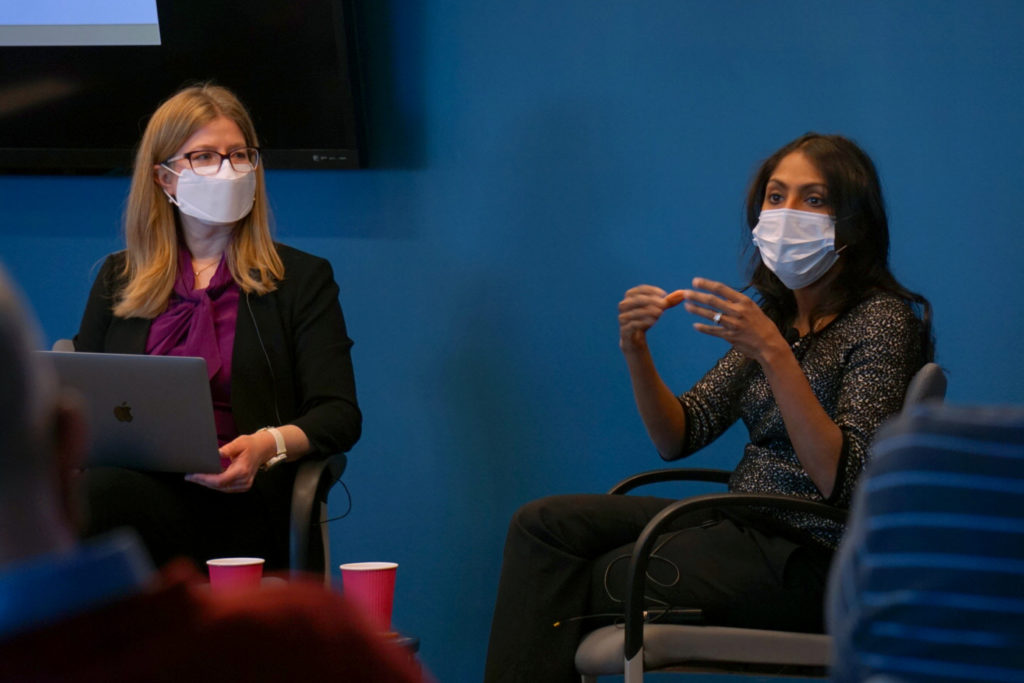A national leader in refugee resettlement called for reform to the U.S. refugee system Wednesday.
Krish O’Mara Vignarajah, the president and chief executive officer of Lutheran Immigration and Refugee Services and former policy director for former First Lady Michelle Obama, spoke about the politicization of refugees and the inefficiency within the American refugee settlement system. The Elliott School of International Affairs hosted the hybrid event in the Linder Family Commons as part of its “What’s Next in Foreign Affairs” Dean’s Speaker Series, which Elliott School Dean Alyssa Ayres moderated.
Vignarajah said the Sri Lankan Civil War forced her to immigrate to the United States at 9 months old, which motivated her to work in refugee aid as an adult.
“For me, it was about appreciating my good fortune and figuring out how I could pay it forward,” Vignarajah said.
Vignarajah said LIRS – one of the nine refugee resettlement agencies nationwide that partners with the State Department – is the largest faith-based, non-profit in the country dedicated to immigration and refugee issues like helping refugees find employment in their newfound homes. She said her organization provided legal services to refugees in response to refugee crises, like the surge of unaccompanied minor arriving to the U.S.-Mexico border and resettlement of Afghan allies and their families after the fall of Kabul last August.
“Many of them were experiencing the trauma of having close relatives who were still in harm’s way in Afghanistan,” she said. “And that was where it was critical for us to just plug them into as many kinds of resources, offer them legal services.”
She said former President Donald Trump politicized refugee caps and temporarily shuttered the existing refugee accommodation infrastructure, like the closure of refugee resettlement offices.
“The Trump administration had a study that was ultimately suppressed, but then leaked that showed that when you take into account the resources that refugees receive, there is a net positive of $63 billion that go to the local and state and federal coffers,” Vignarajah said. “So I think some of it is just highlighting this data that exists.”
She said the lack of political initiative or willpower to reform the inefficient refugee admission system can be blamed on political disputes, but she said she met with members of Congress who admit the immigration and refugee system sorely needs repairs.
Vignarajah said she believes climate refugees, who are forced to flee their homes because of climate change, will be the greatest challenge for organizations like hers in the future.
“We know that climate and the crisis will be the top driver of migration in the 21st century,” she said. “And when you look at the numbers, they could overwhelm the system by 2050. We could have 200 million migrants who are fleeing slow or sudden-onset disasters, and it’s something that hits close to home because obviously, the Americans are experiencing this ourselves.”








